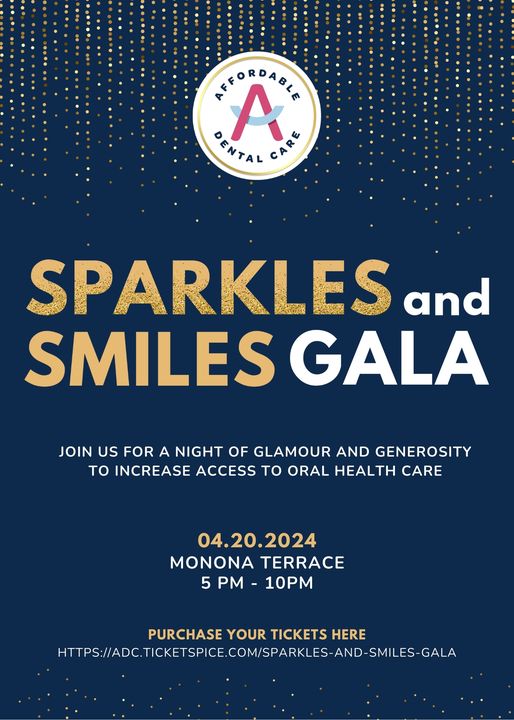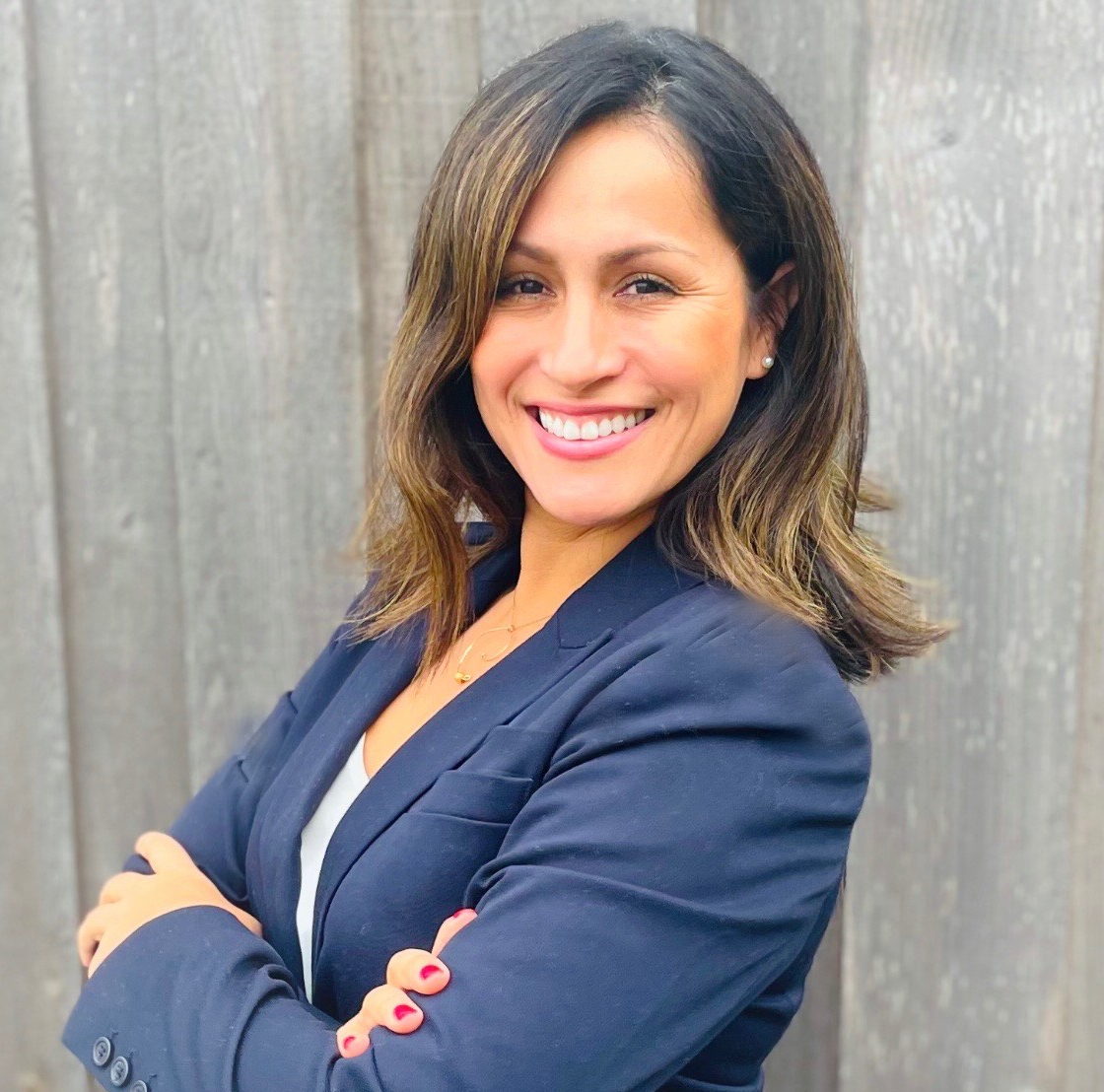
One in three people do not have dental insurance in the United States. Even for those who are insured, many forego visits to the dentist because of cost or anxiety or fear. That can mean living with severe pain and discomfort or, in extreme cases of untreated tooth decay or infection, death. Poorest Americans are hit hardest by this lack of dental access. Areli Estrada, the executive director of Affordable Dental Care in Madison, a bilingual non-profit dental clinic dedicated to providing quality and compassionate care to the uninsured and underinsured, has been working to change those numbers.
When Estrada became the new executive director of Affordable Dental Care in August of 2021 she knew that it was a position that she was well-suited for and she says that she was attracted by the non-profit’s mission of closing the gap and the crisis of access to dental care.
“I love our mission and it’s all about increasing access and transforming the lives of people by giving them the opportunity to smile back. And it’s just amazing,” Estrada tells Madison365 in an interview at Cargo Coffee on E. Washington Ave. in Madison. “We see it every day … people do better at interviewing, and it helps with their employability and self-confidence. They are healthier human beings. It’s all connected.
“I’ve just been very committed and dedicated to our mission since I started. Everything has just grown and I’m just very passionate about community and making communities better and working together,” she continues. “I’m all about collective action, and assessing the needs of community. How do we support each other and just really transform everything that we possibly can?”
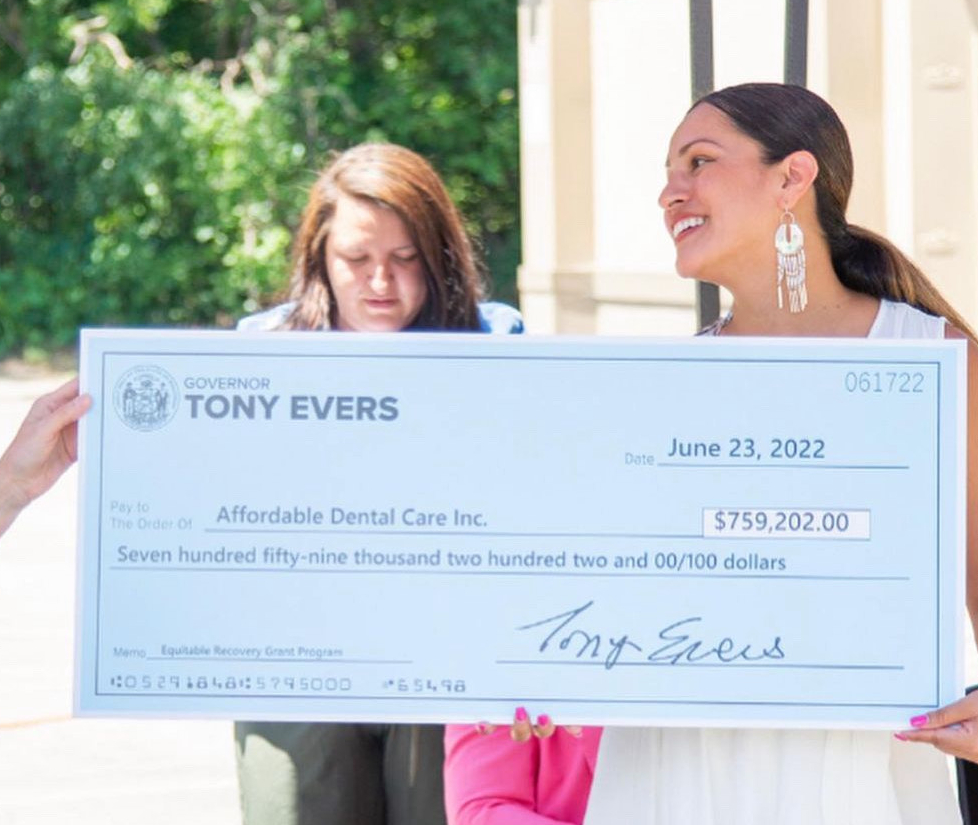
Like many of the people who are served at Affordable Dental Care, Estrada knows all about what it’s like to not have much money or resources. Starting at a young age, she has faced major barriers and life obstacles. “The one thing I always had, no matter how bad things got, was hope,” she says, adding that she hopes her story can be an inspiration to others.
“I’ve experienced a lot of struggles and I’ve had to fight many battles in my life. I knew I needed to do things differently and the only way to create the life I wanted to live was through education,” Estrada says. “Throughout my journey, I’ve mastered the trait of resiliency and I learned that when challenges come up, I can’t give up. Perseverance motivates me.”
Estrada was born in Nayarit, Mexico, and her family emigrated to Los Angeles when she was just seven years old where they moved into a storage unit with just one king-sized bed.
“That storage unit was in a 25-unit apartment complex building that my aunt used to manage. So we moved in there and everything was donated to us … the clothes, shoes, everything,” Estrada remembers. “And we lived there for a few years and it was just one room with one bed and one window. We didn’t have a kitchen or a bathroom and we used to walk across the room to use my aunt’s kitchen and bathroom.”
Her dad’s first job in America was selling corn on the cob for $1 and Estrada would hop in the back of her dad’s car and help him sell corn in many different neighborhoods in LA. “He would go to these large mercaditos in downtown LA and he would buy hundreds of ears of corn and he would boil them in a gigantic pot and make Mexican corn with mayonnaise and hot pepper,” Estrada says. “He would sell them for $1 out of the trunk of his car.
“My dad would travel back and forth from LA to Mexico back in the 70s before I was born. He traveled without a problem. The immigration laws … they weren’t as strict as how they are now,” Estrada remembers. “I come from a very poor family. My dad told me when he was growing up that he only had one pair of jeans and they were torn up. He was so poor. He only made it to first grade and had to stop going to school to help his grandpa. He was a fisherman at times and a farmer at other times.”
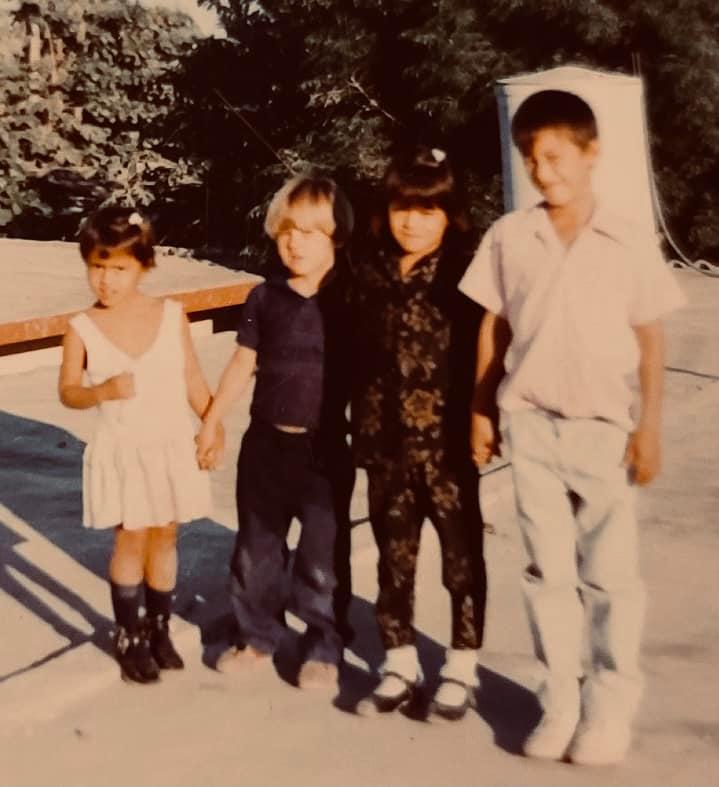
In Los Angeles, Estrada would go to elementary school but she didn’t speak any English. “Kids used to make fun of me when I tried to pronounce words in English,” she remembers.
Eventually, her family would move out of the storage room. Her dad would go on from selling corn for $1 to having his own produce truck. “He would sell whatever he grew – peppers, tomatoes, vegetables. I remember he used to pick me up from high school in his produce truck,” Estrada says. “I used to be embarrassed as a 16-year-old, but now I’m just so grateful for all his work and everything he did. I recognize that I am a product of my parents’ sacrifices and I’m very thankful for everything they did.”
Estrada’s neighborhood in Los Angeles was very rough and when she was old enough, she would soon start to see drugs, prostitution, ambulances, poverty, gunshots, undercover cops, and homelessness. “I remember that I used to get bullied all the time. This girl used to punch me in the stomach for no reason and I would become so fearful every time I would see her and I was so afraid to say anything. I was 12 years old,” Estrada remembers. “Hookers would walk the streets where I lived. They’d hop in the car with somebody. I remember watching them from behind my door when I was little to try and figure out what they were doing. It was wild.
“My dad was robbed at gunpoint when he had his produce business; my big brother was shot across the street from where he went to high school,” she continues. “My cousins were part of the Rodney King riots in ’93; the community was really pissed about what they did to Rodney King. It was all so normal for me until I moved to Wisconsin.”
During Estrada’s first year of community college in Los Angeles, Estrada’s parents moved to Wisconsin to remove her brothers from that environment. By the age of 20, Estrada made a big move herself — to Manitowoc, Wisconsin, where she would live for 8 years. It was quite the culture shock coming from Los Angeles and she felt like she didn’t really fit in. “People made fun of the way that I spoke,” she remembered.
After that, she would move to Green Bay where she earned a bachelor’s degree in human development from UW-Green Bay. “I got involved in a community resource center, Casa ALBA. I worked at a homeless shelter with mental health and substance abuse individuals. I got involved in workforce development programs,” she says. Estrada became the regional director for the Hispanic Chamber of Commerce of Wisconsin for the Green Bay area.
In 2016, she moved to Madison where she found a job as a student support coordinator at Madison College. She worked there for three years and went to graduate school to earn a master’s degree in community development from UW-Madison. She remembers how hard it was to be in school while she was pregnant during the beginning of the COVID-19 pandemic.
“It was very challenging for me at that time. I was getting ready to quit. If there’s something that I’ve learned, and something that I apply now, is that I’ve learned not to quit too soon,” she says.
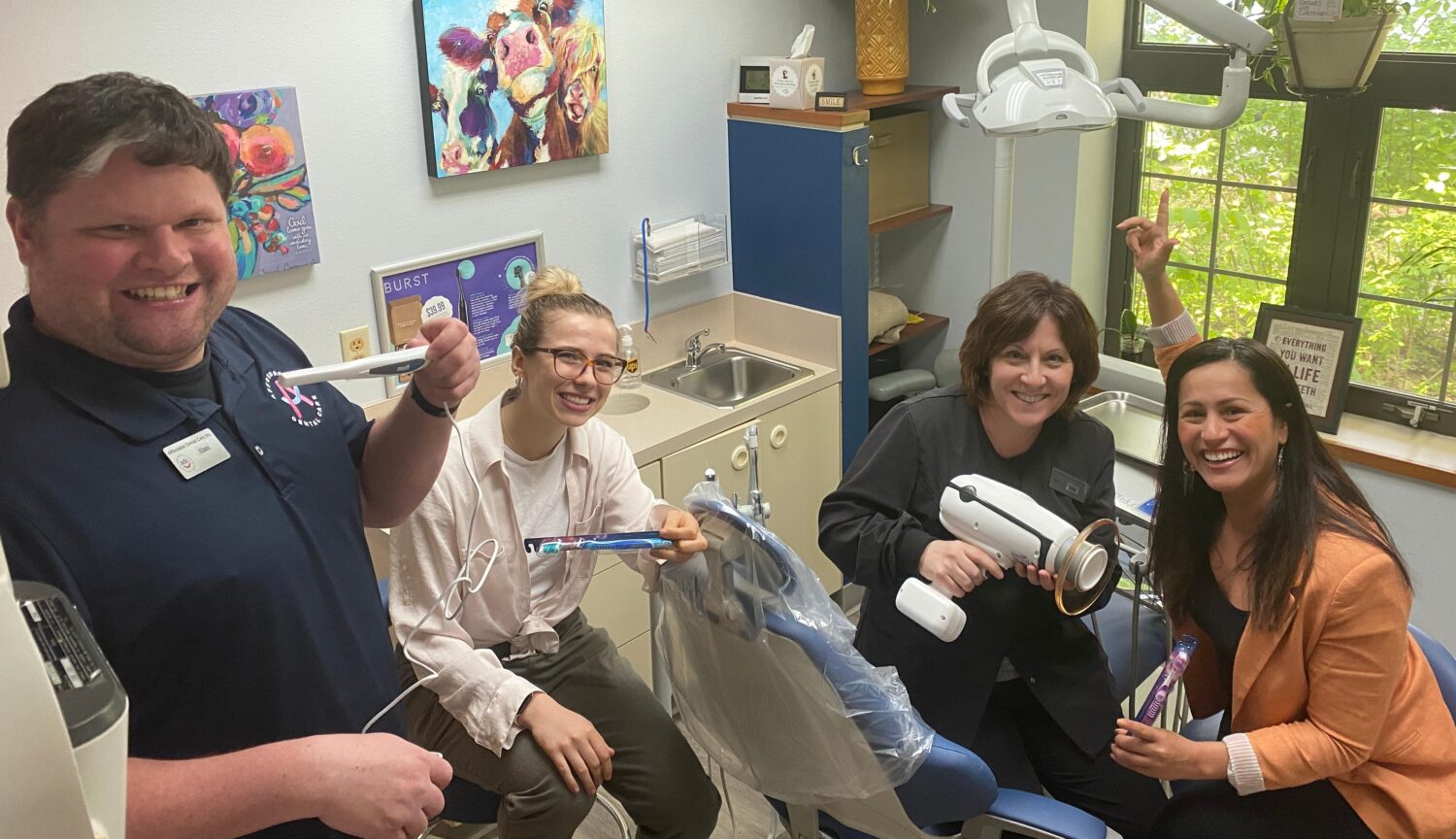
After finishing graduate school she started to interview for a variety of jobs. She weighed various job offers before accepting the position of Affordable Dental Care. “I officially started on Aug. 1, 2021. I did not know a lot about dentistry, but I was eager to learn more about it and I did know a lot about nonprofit management, fundraising and development, event planning and board governance.
“And I fell in love with the mission and I’ve learned a lot of challenges real quick. My priority became to secure funds and there were a lot of COVID relief funds they were awarding back in 2021. I think I started at the right time … within two months I had secured $250,000 and then a year later it had been like $1 million in funds. And now we’re looking at expanding and building a new clinic to increase our services. It’s been wonderful. It’s been really amazing.”
Estrada says that 6.7 percent of the patients they see at ADC are first-time dental patients and 12 percent have only ever gone to the dentist for emergencies. Slightly more than 34 percent of ADC’s clients identify as Hispanic/Latinx. “Just 36 percent of our patients state they have been able to visit the dentist more than once/year and 98 percent of our patients say they would recommend us to a friend and we hold a 5-star rating on all social media platforms,” she says.
Alex Ysquierdo, a longtime Latino community leader here in Madison, has been a member of the board of directors for Affordable Dental Care and says that Estrada is one of the most driven people he’s met.
“I used to work for WEDC [Wisconsin Economic Development Corporation] and all of the diverse chambers in the Madison area came together at the Madison Black Chamber of Commerce and I first met Areli there. She stuck out,” Ysquierdo remembers. “She asked the right questions and she’s not afraid to speak up. As I got to know her story and what she does, I was more impressed. She is driven.
“Areli can be very direct sometimes and I like that. Her drive and her ambition, when she believes in something wholeheartedly, is incredible. If it’s the right thing to do, she instantly becomes a champion of it.”
Through Ysquierdo, Estrada was able to meet Wisconsin Governor Tony Evers.
“I knew the governor was going to be at one of these functions and I brought her as a guest to meet the governor,” Ysquierdo says. “She found a way to get in front of him and take a picture with him and soon somebody from his cabinet came to see her at Affordable Dental Care. Areli doesn’t take no for an answer. She is a ‘why not?’ type of person.
“Her persistence is evident in what she’s done at Affordable Dental Care. I remember her telling me at the beginning that she only had 30 days of payroll left and now they are moving into a new building and really growing the staff and really advocating for the people and her program. She is a doer. She doesn’t live the life of a turtle.”
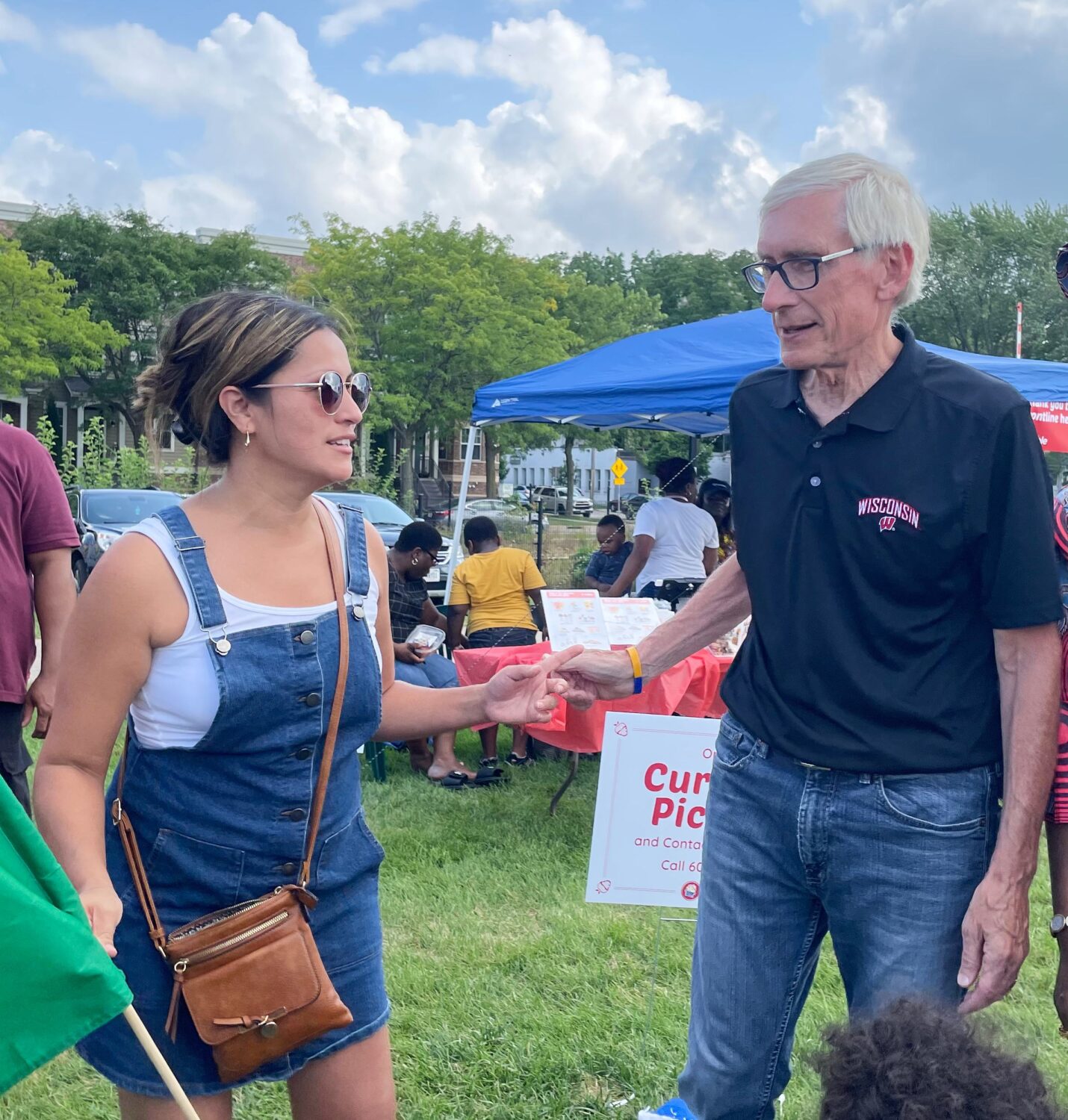
Other people in Madison are beginning to notice that Estrada is a “doer,” too. Estrada was recently named to In Business Magazine’s 40 under 40 Class of 2024. Prior to that, she made the list of Madison365’s “Sí Se Puede 2021: Wisconsin’s 36 Most Influential Latino Leaders.”
Personal accolades aside, Estrada is most excited that Affordable Dental Care will soon be expanding and building a brand-new larger facility later this year at the corner of Sherman and Aberg Ave. on Madison’s North Side. In an effort to support this expansion, Affordable Dental Care will be hosting its inaugural gala, “Sparkles and Smiles,” on April, 20, 5-10 p.m. at the Monona Terrace Community and Convention Center.
“We’re building a clinic with eight treatment groups. Currently, we have four and one full-time dentist and we’re looking at doubling everything that we’re doing,” Estrada says. “I think there’s just been a substantial demand and an increase in our services … a high demand. So I’m just very grateful for the partners and the support that we’ve gotten in the last couple of years.”
Estrada is looking forward to being able to help even more people with their smiles as Affordable Dental Care expands.
“Your health is everything and we are really intent on lessening these disparities in health that we see locally, statewide and nationwide,” Estrada says. “We are accessible and affordable.”
Estrada adds that she is “passionate about strengthening communities and making them better.”
“I really see myself as an agent of positive social change and I think that’s what we’re doing. Madison is such a great community. I love Madison,” she adds. “I hope that by sharing my story and my life struggles that I can inspire others … especially young girls who want a college education, or who are just someone who wants to be successful and transform their lives. I want to inspire someone and I want to give them hope.”

